A Radical Gabfest With Laurie Penny

Author and independent journalist Laurie Penny, aka Penny Red. Photo © Montalbetti + Campbell.
Sharp, exuberant, funny, passionate, and radically progressive, Laurie Penny (aka Penny Red) has a lot to say, and she isn’t afraid to say it… no matter what. In early 2011, at the age of twenty-three, this English writer skyrocketed into the press with her on-the-ground, heart-in-mouth coverage of the UK student protests. Later that same year, her shrewd reportage of the NYC-based Occupy protests garnered her an even larger readership around the blogosphere, on Twitter, and via various mainstream media outlets.
Since then, Penny’s been a columnist for The New Statesman and has written several articles for The Guardian and The Evening Standard. Her first two books, Meat Market: Female Flesh Under Capitalism, and Penny Red: Notes from the New Age of Dissent, were both published in 2011 by Zero Press. Currently, she and our good chum Molly Crabapple are collaborating on an ebook project called Discordia for Random House. Penny’s also spearheading a super secret video series that will “aim to challenge contemporary debate culture” by implementing a time-honored salon format. More information on that coming soon.
I’ve been keen to interview Laurie Penny for ages. Earlier this weekend, we finally got around to talking, and talking… AND TALKING, via Gchat (she at her mum’s house in the woods somewhere in England, me at my folks’ place in the chaparral somewhere in California). In fact, we didn’t shut up for several hours. What follows is the lion’s share of that conversation, minus our occasional indecipherable segues into bat country. (Well, most of them, anyway.)
Good readers, let it be known that this transcript is quite long, so we’ve broken it up into sub-headed sections in the hopes of keeping your eyeballs from bleeding. Laurie, thanks again! Always happy to put a kettle on for you here at Coilhouse. Can’t wait to see what you and your “savage red pen of justice” get up to next!

AD HOMINEM
Laurie: Well, I do get a lot of attacks – people tell me I get more and more frightening trolling even than the usual barrage of hate and intimidation and slut-shaming that any woman raising her voice above a whisper on the internet has come to expect. It’s hard, sometimes. I’ve had very dark moments with it, and I don’t know how I would have coped without my friends. I’ve always been a sensitive person. I’ve had to develop a thicker skin, but at the same time I don’t want a tough hide. I think that’s a dangerous thing for a writer, particularly now. You can get to the stage where all criticism, even the legitimate, useful kind, just bounces off you, and you ossify into a little cocoon of your own prejudices. I’ve been very close to kicking it all in several times, particularly last spring, when I had some personal threats against my family on top of the rest of it, and I was also burned out from overwork. I started wondering if the toll it was all taking was worth it, the stress and exhaustion and panic attacks. When I get very low, which happens sometimes, I often think that I’d give up and shut up like these scumbags want if I didn’t hate the idea of letting them win. But spite alone is no way to work or write if you believe in doing your own small bit to change the world.
Mer: No, it’s not.
Laurie: Part of all this is particular to the British press, too. The culture of political debate in this country is toxic right now. Has been for years. And geographically as well as figuratively, it’s a very small island. Also, it’s just that some people really hate it when young women talk about things that aren’t shoes. Not that shoes aren’t important, too! In their own way.
OMG SHOES
Mer: Haha! I just pictured our mutual comrade Molly Crabapple in her Louboutins and thought to myself “Yes, yes shoes are important!” (As an aside, I’ve been loving watching some of my other sister bloggers become more and more politicized as they go: Gala Darling and Shien Lee are both great examples of that.)
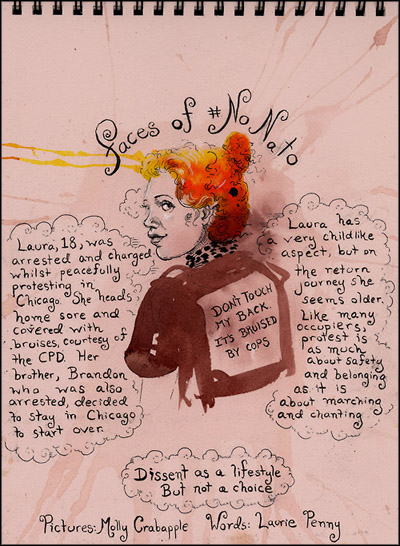
Laurie: Practical footwear is important! Molly and I are off to do some reporting [in Greece] together for our upcoming ebook collaboration, Discordia, later this week, and I was shocked to learn that she doesn’t actually own shoes without heels. She claims her feet are that shape now, like little bird-claws. And I’m like, “Molly, Syntagma Square has pavement cracks. Also, riot police.”
Mer: Eep! Say hi to the Golden Dawn for me.
Laurie: Since I was little, I’ve had the same personal footwear rule: I never wear shoes that would be impractical if I were suddenly whisked away on an adventure or a magical quest. Ultimately, I’m a nerd and a fangirl, and a bit of me always thinks the TARDIS is about to turn up. Would you want to be wearing the wrong shoes if the TARDIS turned up? No, you would not.
Mer: Noooo. I would not. Especially if the TARDIS was carrying the David Tennant Doctor!
Laurie: They make nice little wedges you can run in, now, anyway.
BURLESQUE
Laurie: Lovely China!
Mer: In December of 2010, we were in the middle of an interview (an epically gonzo chat that, incidentally, has yet to see the light of day, much to my frustration and dismay!) and at one point, while we were discussing the politics and semantics of neo-burlesque, he sung your praises. Later, he directed me to two pieces you wrote early on in your professional career for the Guardian on feminism, burlesque, alternative culture, revolution, and misogyny. My own views concerning burlesque are far less concrete or critical than your own, or China’s, for that matter. Nevertheless, several statements you made in those articles have stuck with me. Especially this one: “If you want to feel sexy, have sex – and if you want to be empowered, join a political movement.” I like that.
Laurie: My views on burlesque have changed since I wrote that piece. I stand by some of the things I said in the original piece, that quite a lot of what currently passes for burlesque is just plain old stripping with more expensive underwear, and nothing to do with the real spirit of burlesque, which was all about working class protest theatre, satire, anti-censorship. It’s difficult to communicate that now in the same way, because sexual performance and explicit nudity are rarely challenging in and of themselves. We still live in an age of enormous sexual repression, just one in which it isn’t the event of a lifetime to see a stranger’s nipples. But I think burlesque as it is currently understood can be subversive and meaningful. I’ve seen it done. Some friends of mine run a queer, kink-positive, feminist burlesque troupe! My favourite kinds of burlesque are always about the gender fuckery, the expansive disguises, the music that sounds like a a dying AI trying to pretend it’s an organ grinder.
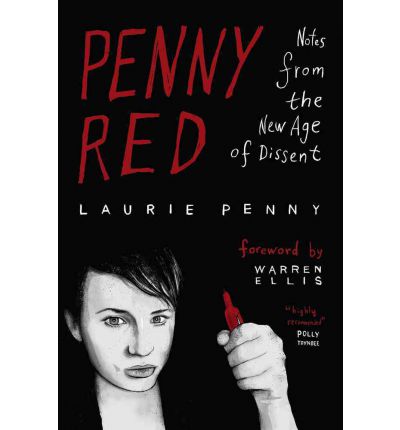
Ultimately, I’ve come to believe that the question of whether or not burlesque, like any other kind of sexual artistry and/or or sex work –I’ve met performers who see themselves as both– is empowering, THAT ISN’T THE IMPORTANT QUESTION AT ALL. Of course it’s empowering, or it can be. The question is, what type of power? That terrible book, Erotic Capital? I reviewed it. It comes to the conclusion that since women are always going to be less powerful than men in every important respect, whilst we’re young and hot we should cash in our erotic capital and use that limited, contingent power for everything we can get. The power to excite and to tease and to withhold sex and withdraw it… What always gets me about that is that it’s dependent on denying your own pleasure. The kind of burlesque I really respect is confrontational, it has nothing to do with “the art of the tease” or whatever fucking slogan Dita Von Sellout is using now. The power to tease and tempt and titillate is real power, of course it is. And making men want you, that can be empowering, of course it can, personally and emotionally and financially. But it’s such a limited form of power. So boring. And it’s not the only thing burlesque is about. Some of the best burlesque I’ve seen was actually really gruesome, sexual but not sexy.
Mer: Grand Guignol style stuff!
Laurie: Precisely. Grand Guignol, grotesquery, pantomime, drag, drag and more drag. Not that drag is generally gruesome.
Mer: It can be, though. (Tranimalism, holy FUCK.)
Laurie: I suppose the point about burlesque is that done well, it should look beautiful, yes, but it should be shocking. Ain’t nothing shocking about a naked lass smiling for the punters. Nothing hugely harmful, if she’s happy, but nothing shocking.
VULNERABILITY
Laurie: I was a troubled teenager, and have written in articles and in my first book about being treated in hospital for anorexia when I was 17. Sometimes I get frustrated when people ask me about that, because in many ways my life since then has been about finding new ways to experience and address the world that have nothing to do with being That Crazy Girl. But I also didn’t realise when I started how much work isn’t being done in terms of talking about young people and mental health seriously, and politically.
Mer: Yes. It can be profoundly helpful and reassuring to hear someone talk openly about that stuff, without shame. And frankly, I’m glad that you do, in properly presented context, with valid and edifying reasons for doing so.
Laurie: I’ve spent quite a lot of my teens and twenties caring for other people who had multiple mental health difficulties, and that’s increasingly hard to separate from the political subsumption of our intimate lives. You can’t talk about young people and depression without talking about unemployment, lack of opportunities, lack of hope. You can’t talk about young women and self-starvation without talking about feminism. For me, politics is part of what keeps me well, and I try to write in a way that I think the sixteen-year-old me, and other people like her, would find encouraging. I started in chat rooms and on pro-anorexia forums, writing positive, pro-recovery messages and connecting with people there. I suppose in a way I’ve always hoped I could use writing to make people feel better and more hopeful. Although sometimes, as the Obama generation has learned to its cost, hope alone isn’t enough. One thing that’s not been reported enough about Occupy and other movements is how driven they are by young people who have nowhere else to go, because of personal or political circumstances or some tragic combination of the two. I think lost kids, the kids who the world nearly breaks, are the ones who will grow up to change it. This time, anyway. I left home as a sick seventeen-year-old and never went back. I know what that looks like– the energy and the vulnerability.

Mer: All too often, we humans tend to equate vulnerability with weakness. But I think it’s unwise to dismiss statements as invalid just because they’re voiced from a raw, vulnerable place.
Laurie: Absolutely.
Mer: The voice of youth is often raw and vulnerable, and shouldn’t be devalued or taken lightly by older generations simply because that’s so. Especially when there’s so much so much at stake. That’s one of the big reasons why I like your reportage so much! And why I find it disappointing whenever there seems to be no fair fight to be had with the old guard.
Laurie: I’m still a sensitive person, and I have to take care of my health – I don’t really drink, I try to get to bed on time, and I can feel very vulnerable when anonymous trolls and cantankerous old Tories try to rubbish me all over the internet. But that’s worth it every time a young woman comes up and tells me that my writing is inspirational or useful, which happens from time to time. That’s what I get up in the morning for. Or, in some cases, the afternoon.
Mer: Good. So, what else shall we talk about?
SEXY, SEXY MOUTH-BREATHING / FREEDOM
Laurie: I am very interested in men at the moment.
Mer: Okay, then!
Laurie: And not just in the naughty ways.
Mer: Yes, I noticed you’ve been fielding suggestions for sex-positive feminist male bloggers on Twitter. That’s interesting! I like the stuff you’ve had to say, consistently, about how commodifying female sexuality does a disservice to male sexuality as well, because it discourages real intimacy/humanity. It can be harmful for either side of “the binary”, as well as to more gender fluid people.
Laurie: A big discussion about men, boys, feminism and the role of masculinity is just around the corner, thank gods. It’ll start with Hannah Rosin’s book, The End of Men, which is due out later this year, but it’s been brewing for a long time. Well, the thing about sex and capitalism is that sexual and romantic satisfaction – whether that’s heart-fissuring intimacy or just a really great orgasm – isn’t something anyone can actually sell! Controlling and commodifying sexuality is all about creating dissatisfaction, frustration, division between humans. So, you can’t sell intimacy – but you can tell little girls that they’ll never be loved if they don’t look like Kristen Stewart, and then offer them a range of products to make their lips poutier, their skin paler, their hair straighter.
Mer: Ah, yes. The Twilight phenomenon. Sexy, sexy mouth-breathing.
Laurie: You can’t sell a great orgasm, but you can sell pornography that associates orgasm with perpetual frustration and an arms race of gendered violence.
Mer: So sad.
Laurie: It is, it’s really sad. I mean, one of the things I wrote about in Meat Market, although it’s hardly a blindingly original observation, is that it’s not the fact of pornography itself that’s the problem, but the type of porn that’s available… or widely available.
Mer: My thoughts as well. We need more loving porn, more intimate and inclusive porn. Human porn, if that’s possible!
Laurie: People talk about ‘sexualisation’ of culture as if the frigid, violent, inhuman images of bored-looking, hairless white people slamming their bodies joylessly into each other were the same thing as sex. The sad thing is that more than one generation is growing up with the idea that that’s what sex looks like, or should look like. A world without silliness, intimacy or fanny farts.
Mer: Heeee!
Laurie: The gulag of desire – nobody gets out, and nobody gets off! Really, you can tell a great deal about modern culture from watching porn. I encourage all my friends to do so with a critical eye, not that the first part is usually a problem.
Mer: That’s why I love productions like the Crash Pad Series so much, and performers like Jiz Lee and Buck Angel—
Laurie: –actually, I used to live with people who made ‘fair trade’ porn – mostly fetish and SM stuff.
Mer: I’ve got about a decade on you, and I think a lot of walls have come down between Gen X and Gen Y. I’ve noticed that a lot of women my age and older are pretty reluctant to discuss their porn-viewing habits.
Laurie: Are you Gen X?
Mer: Yeah, tail end.
Laurie: Gen Z are the really fascinating ones. Or gonna be. The cut-off there has to be around ’97, I reckon. In what way do [Gen X-ers] struggle?
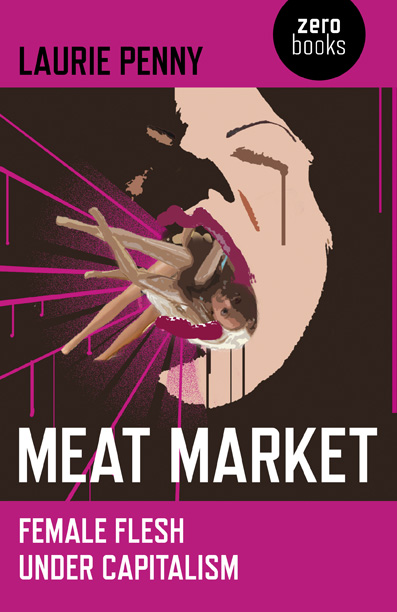
Cover by Kate Pocklington
Mer: Most of my closer friends of a similar age are sex-positive, open-minded, etc… but more generally, when I venture out of my cozy little “consensus bubble”, I notice that many thirty-to-fortysomething women –self-identifying feminists and not– struggle a lot with openly, or even privately, [perceiving] pornography as potentially healthy. I think, on a more general level, we need to start talking more about humanity and intimacy and empathy in our culture and how those qualities interface –or don’t-– with capitalism and politics and control.
Laurie: There’s a really damaging dichotomy at play whereby we’re told we’re living in the freest of all possible worlds, sexually speaking, but in fact the range of options on offer is very limited, and ultimate freedom looks a lot like exploiting other humans. As with sex, so with the rest of life.
Mer: Yep.
Laurie: Freedom is the most misused word in modern English. So we have a ‘free’ market, where we’re all liberated economic agents and anyone can be a millionaire, but what that actually involves is brutal systems of social control, enormous gulfs of inequality, frustration, poverty and violence. Really, we should have wised up to that when they named an oil war after it.
Mer: Indeed. And SO much of that control is channeled through shame.
Laurie: Oh, absolutely. Shame is essential to the proper functioning of modern capitalism, in and out of the bedroom.
Mer: Before we spin off into a new topic… there’s such a potent stigma attached to viewing porn, isn’t there? Especially when you’re female. And I think that’s why it’s such a tremendously polarizing topic, even among feminists. Which is understandable, because SO much porn is so damn hateful and dehumanizing.
Laurie: It’s a bit of a bloody dilemma, frankly. Because in theory, pornography is just one more excitingly sticky way for women to explore the boundaries of our own desire, but in practice, most of the pornography that’s easily available is violent, dehumanising and misogynist – and a lot of women either don’t get past that hurdle, or hide away with it privately. Bluntly, when you fancy a wank, and the only dirty pictures you can find involve endless choking blow-jobs and anal torture, you tend to feel a little unsisterly. Plus, sex is a social idea, and porn creates what we understand as common sexuality as well as reflecting it. We are what we jerk off to. You can, of course, find fair-trade porn out there, and ‘feminist’ porn, and porn that caters to all kinds of specific tastes – but often you have to know what you’re looking for in the first place. I think that’s why so many women turn to erotic writing instead – reading it, making it, sharing it. That’s why fan fiction fascinates me!
me: Yes! A completely different kind of stroke material. And, from what I understand, it stimulates different parts of the brain, too! Different process of desire.
Laurie: Really? [eyebrow] Citation needed! I’m really skeptical about cod-scientific statements like “men are visually stimulated, women are aurally stimulated”.
Mer: I am skeptical [of those claims] as well, believe me.
Laurie: I mean, Fifty Shades of Grey started off as fan fiction, and whilst the publishers don’t want to talk about that, it’s essential to the text.
Mer: Fan/slash fiction is truly fascinating. So… I’m not sure if that study I read about was parsing by biological sex. Hang on, lemme find it. [rustles around online for a bit] Here we go. Aw, crap. I think it might be sex-divided after all. Nevermind. Still, it’s interesting research.
Laurie: Trigger-happy sex-stereotyping evolutionary psychology mustn’t be indulged, even when it seems to confirm our prejudices. [cough] SexAtDawn [cough]
Mer: Ha!
Laurie: Seriously, fuck that book. I see what they were trying to do. But all of my poly friends told me to read it, and it just read like “still bad science, but our bad science”!
Mer: BUT I WANT TO BELIEVE, LAURIE.
Laurie: Then you’ll have to fap by faith alone. On record? I’m very interested in polyamory, non-monogamy, open relationships and other alternative approaches to sexuality – I’d call them queer approaches, although they have very little to do with the genital arrangement of who you’re sleeping with.

Photo by Audrey Penven.
LITTLE EARTHQUAKES
Mer: Awww. This conversation is making me pine for Wicked Grounds. It’s my unofficial Coilhouse office whenever I’m in San Francisco. Have you ever been?
Laurie: Never been to SF.
Mer: WAT.
Laurie: Never been to the West Coast.
Mer: WAAAAAAAT.
Laurie: I am English, remember. Also, I’m afraid of earthquakes. No joke.
Mer: But… but… you gotta get out there and hang out with all of the brilliant poly hacker activist bleeding heart boho weirdos. They are magical! You will love them! They will love you!
Laurie: BUT EARTHQUAKES.
Mer: Sure. Well, frankly, San Francisco is still far less likely to kill you than mounted police toppling a barricade and stomping on top you. And I know you’ve been there/done that! Ah, well. If you ever get over your quake-fear, you have to go to Wicked Grounds. All (18+) are welcome: nudists, leather dykes, ponies, puppies, masters and their sensory-dep subs, hippies, body-modders, furries, rennies, dommes, good food, great coffee, charming staff, excellent wifi. And board games! During the afternoons, WG is laid-back, casual… everyone just chills. It’s a sweet community with a great sense of humor.
Laurie: FURRIES, ARGH. MY ONE PREJUDICE.
Mer: Awww. I used to be leery. Nowadays I just feel protective of them. Too many people mistakenly equate furfandom with bestiality. Furries are of no harm to anyone, and easy targets who get bullied and teased a lot.
Laurie: Oh, they are sweet. I met a couple of teenage emo wolves on the London Underground the other day. Holding hands, off to a convention, cute as anything.
Mer: Author Samuel R. Delany once pointed out to a friend of mine –very wisely, they thought– that anybody else’s most crucial fetish generally strikes us as comical at best! I do wish there was more open and kindly discussion of why that is, as opposed to pointing-and-laughing at best, knee-jerk damnation at worst. I have a lot of affection for compassionate, self-aware weirdos, especially the queer geeky kink clans I know in SF, where everyone who partakes, even peripherally, is expected to adhere very strict and well-defined codes of honor, responsibility. They get that communication and negotiation and the psychology of it all will make or break a scene. The perverts all hold themselves (and each other) to very high standards, so to speak. Which I deeply respect… even if I can’t stop myself from giggling at the kinks themselves, sometimes. (I’m a giggler! It’s one of my kinks! Can’t be helped!)
Laurie: Oh, I love that about the kink scene. How everyone has to take it all so very, very seriously. London, of course, being the world kink capital! I’ve got another 45 minutes left to chat, by the way.
Mer: Oh, good! We can cover plenty of ground provided we don’t fall down a faphole. FAPHOLE IS TOTES A WORD.
Laurie: It is now!
HI, MOM. PLEASE DON’T READ THIS.
Mer: By the way? I love that this interview is taking place at our family homes.
Laurie: On chat at mum and dad’s, keeping the chat window out of sight. How modern.
Mer: My mom just asked what I was giggling about. “Umm… CATS!” Hey, that’s kind of a fun question, actually; how closely does your family keep tabs on your career, and all of the radical topics you write about?
Laurie: Not that close. I’m going to start keeping a video of an adorable pig handy.
Mer: Oatmeal Peeeeeeeg. Oatmeal Peeg will save us all!
Laurie: In a way, are we not all that pig, forever mastering our fear of falling down an enormous staircase because we want tasty, tasty oatmeal so much?
Me: Aye, that we are. (I am so embedding that video in our interview, by the way.)
LABOUR Of LOVE
Laurie: So! Where were we.
Mer: How about from sex, to… love? Love and women and labor. You have a lot to say about that.
Laurie: Yes. The whole way we’re taught to think about sex and love is as one enormous, insurmountable social dichotomy, where, on the one hand, you have meaningless, animal rutting and on the other you have love, marriage and cheap chocolates. That’s it. Those are your options. Men want one, women want the other, and no one’s ever quite satisfied, which of course is part of the point. In reality, almost everybody’s experience and desires fall somewhere in between the two, but we’re not allowed to discuss that in any meaningful social or political context.
Mer: Right. It’s all a bit (pardon the phrase) ham-fisted. Everything gets oversimplified.
Laurie: Although nothing could be more political. Control of women is control of low-waged labour and unpaid labour and control of social reproduction. Right now, we’re in the middle of a massive fight back against women’s sexual and social freedom, and nobody’s joining the dots. For example today, in the news, massive, terrifying crackdowns on abortion rights across the united states, making reproductive health effectively illegal outside a few major urban centres. Meanwhile, the topic of discussion amongst coffee-table columnists is: can middle-class women really manage a career and childcare at the same time? Are women with full time jobs neglecting their kids? Don’t tell me the two aren’t related.
Mer: Yeah, that’s been the debate dujour. “Why Women Still Can’t Have It All”.
Laurie: The timing isn’t a coincidence, and anyone with any lingering fondness for little indulgences like the right to basic fucking bodily self-determination needs to wake up and smell the backlash, and remember that social change can go backward as well as forward.
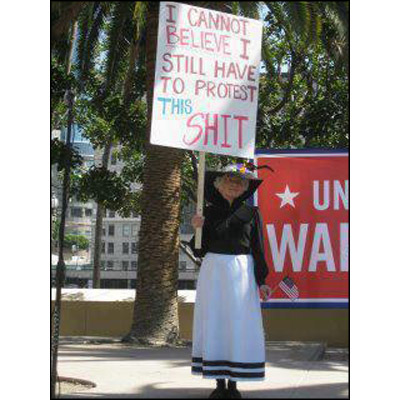
Mer: I was watching a Charlie Rose conversation with Nora Ephron (RIP) where she mentioned her mother, Phoebe Ephron, ordering Lillian Ross out of her house after Ross pointedly asking her if she ever saw her kids. Phoebe Ephron being an early 21st Century example of a woman who “had it all”. That confrontation happened [several decades] ago. And it’s still happening, over and over again. People tend to forget that evolution isn’t always a steady upward trajectory.
Laurie: People our age, particularly young women, need to step up and take that car out of reverse, because no fucker is going to do it for us. By the time I’m a hundred-and-fifty, and a brain in a jar, I don’t want to be telling my pre-transplant grandclones about a golden thirty years of social permissiveness sometime in the Twentieth Century as a barely registered blip in a long human story of sexual and social repression. But anyway. We should probably make some of this interview not about sex!
Mer: Do we haaaaave to?
Laurie: We can’t fuck our way to freedom, after all, not that it isn’t worth a jolly good try!
THE FUTURE OF PROTEST CULTURE
Mer: Ooookay. Stay on target, Oatmeal Peeg. Let’s see, what next… oh, I know! [Booming, stern announcer voice:] “The Future of Protest Culture”. Let’s talk about youth activism and disenfranchisement, the open-source countercultural movements that are beginning to thrive and grow, and your own experiences within this rapidly evolving, globalizing infrastructure. Or summat.
Laurie: Yes.
Mer: That’s really been the stuff that sent your career into hyperdrive.
Laurie: I’m still a bit bewildered as to how that happened!
Mer: It’s kind of surreal. You’re this very young, smart, radicalized woman, going toe-to-toe with angry UK silverbacks and tabloid hyenas of conservatism twice your age, all the while interfacing with fellow protestors and activists even younger than you are. Kids all over the world, in their early teens to mid-twenties, who have been galvanized to act. And most of these communications are globalized and interconnected. We can try to compare these social movements to the Sixties, but it’s a completely different beast. The immediacy, alone…
Laurie: For me, the turning point of my career was precisely the same moment as the turning point of modern youth politics in Britain – the riot at Millbank in November of 2010, when five-thousand students took over the headquarters of the Conservative Party, the party in government, overwhelmed the police, stormed the building, smashed the place up and held a rave in the lobby. I was there, tweeting, and when I got home, I wrote an article that went viral. It was a life-changing moment, but it would have been anyway, even if I hadn’t written a word. Watching people’s preconceptions shatter like so much plateglass, watching young people suddenly realise that they had power, burning bonfires made of placards that read “WHERE’S OUR FUTURE?” All very melodramatic.
Mer: It must have been exhilarating. Terrifying?
Laurie: Yes.
Mer: As you said then, people don’t tend to smash shit up unless they feel completely disempowered and tiny. That kind of group think can be very scary, too. Sick. But it’s only a symptom of a far bigger and more dangerous ailment that desperately needs tending to. Sometimes you just have to scream and fuck shit up before anyone pays attention?
Laurie: My friend, the singer/songwriter Grace Petrie says, ‘when no one’s listening, only violence makes the news‘. [She wrote this song] about the UK Student riots of November 2010:
Mer: A LOT of shit has gone down since then. So much.
Laurie: It feels like far longer ago than eighteen months.
Mer: Life (and revolution) in concentrate! Revolution, and… maturation?
Laurie: [This is] a different beast to the 1960s, or what we now understand as “the Sixties”. Comparing it to the Sixties, of course, includes a narrative of inevitable failure. In some ways, what we’re seeing now is the end of the Sixties. The point at which the terrifying, enslaving faux-freedom that people were sold in place of the real personal, intimate liberation that they craved reached its logical conclusion in financial feudalism and social collapse… neoliberalism and globalisation imploding like a cheaply constructed pair of skyscrapers.
Mer: OH, SNAP.
Laurie: Also, I think they had better drugs then.
Mer: Heh. Yes, it probably was far more hedonistic.
Laurie: Yes. Don’t get me wrong, I’ve seen a fair amount of fucking and drug-taking in the various student and youth movements I’ve been privy to over the past eighteen months –first as a blogger and activist, and then as a full-time reporter– but overall, there seems to be precious little time for fun. It’s not playtime anymore. This generation understands that.
Mer: Do you worry that Occupy has lost steam?

Photo © Montalbetti + Campbell
Laurie: Listen, not to sound like an old hand here, but the trajectory of Occupy is exactly what I observed in the UK almost a year before, emotionally and practically speaking. First, an enormous upwelling of energy, media attention, networks building, young people having their consciousness raised all over the country and the world, old lefties who’d given up hope digging out their battle flags and coming back to the protest lines… then a massive police crackdown, a cold winter, fracturing of the movement into splinter groups, internal bickering and headlessness, a lack of hierarchy being confused with lack of leadership, only one of which is definitely a good thing, an inevitable drop off of media attention in a world where all political activity is spectacle-based (Arundhati Roy says that, and she’s right, that non-violent protest is always theatre, it relies on an audience), more police crackdowns, a culture of paranoia, young activists burning out after months of too little sleep on hard floors. Then someone somewhere else in the world has another new idea and the cycle, hopefully, starts again.
The point is that what we’ve got here isn’t just a minor series of disconnected national scuffles. Nah. Downtwinkles to that. This is a massive, global crisis of capital, a massive, global crisis of representative democracy and a massive, encroaching set of environmental catastrophes, all crashing into each other. None of these movements can afford to be a flash in the pan.
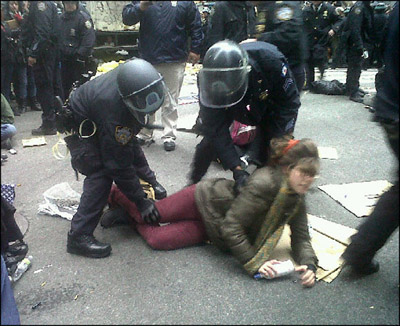
Cameraphone picture taken and uploaded to Twitter by Laurie Penny. NYC, November, 2011. (via)
We don’t get to go back to our homes and get on with our comfortable lives like some of our parents did when they stopped being hippies. We don’t get to sell out, even if we want to. We’re in deep shit. The one and only choice we have, as a generation (as two-and-a-half generations; the tail end of X, plus Y and Z) is what kind of shit we want to be in. Occupy, like the student movement in England, isn’t ‘fizzling out’. It’s floundering and dispersing as an inevitable and anticipated consequence of massive, brutal and co-ordinated police crackdowns. If it weren’t for the NYPD, there’d still be tents in Zucotti Park, guaranteed.
AND IN CONCLUSION…
Mer: What keeps you going and what keeps you grounded?
Laurie: Well…I have some good close friends, a lot of them writers themselves, who keep me grounded. I spend a great deal of my time in coffee shops, writing and talking to strangers. One of the advantages to being young, female and unthreatening-looking is that you can start conversations with whoever you fancy without intimidating them. Apart from that, travelling. I’m happiest of all when I’m on a train to somewhere new with a good book in my bag. Right now, home is where I plug in my laptop!


July 1st, 2012 at 6:48 pm
Wow, great gabfest! So glad you posted this whole thing.
Srsly, I am tail end of Gen X, too, but I want to be Laurie Penny when I grow up.
July 1st, 2012 at 8:16 pm
Fascinating interview. I’m sad Jimmy didn’t make it in.
I’m also curious as to what Mz. Penny’s beef with Sex at Dawn is, but I suppose some interneting may bring me the answer.
July 2nd, 2012 at 6:04 am
“Since I was little, I’ve had the same personal footwear rule: I never wear shoes that would be impractical if I were suddenly whisked away on an adventure or a magical quest. Ultimately, I’m a nerd and a fangirl, and a bit of me always thinks the TARDIS is about to turn up. Would you want to be wearing the wrong shoes if the TARDIS turned up? No, you would not.”
Sooo glad to hear I’m not the only one! That makes it less crazy right? Right?! Seriously.
July 2nd, 2012 at 6:49 am
I really appreciated Penny’s coverage of Occupy while she was in New York, and I enjoyed this interview as reflection and digestion. I’m looking forward to learning more about this Discordia project.
July 2nd, 2012 at 9:39 am
[…] Read this, esp. if you’re a woman and political, if you’re one of those, or neither. @Pe… […]